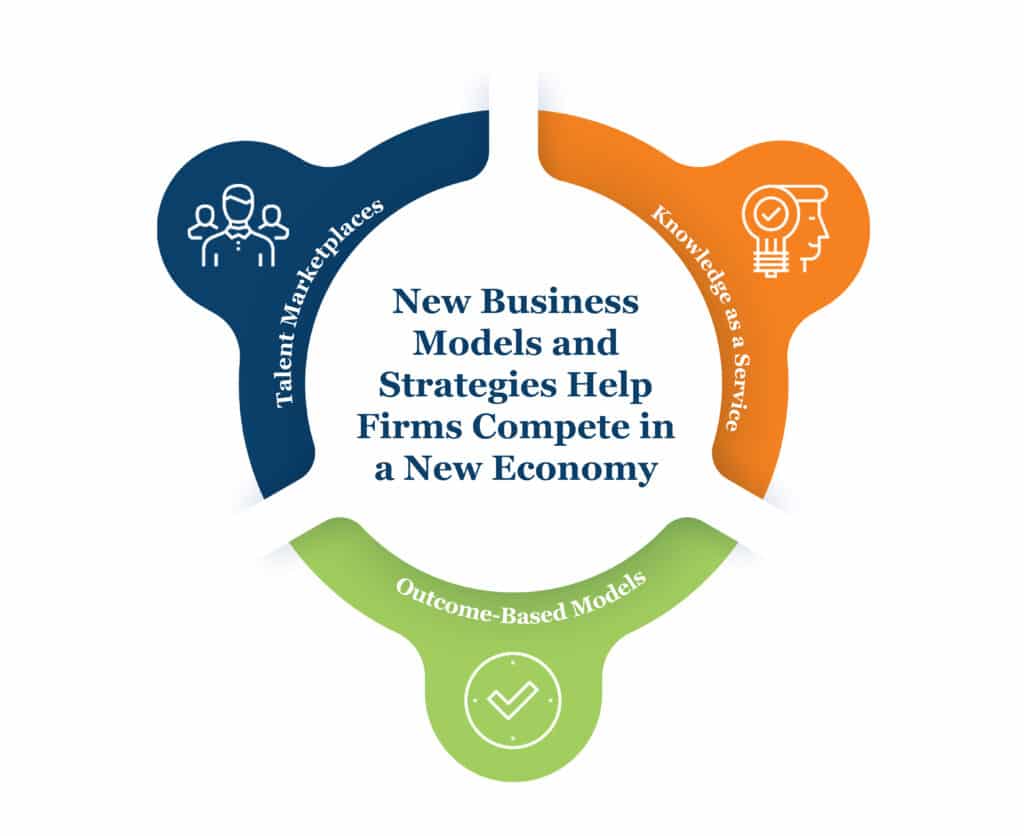What is the Professional Services Industry All About?
Explore the ultimate guide to the professional services industry. Discover key trends, challenges, and strategies to drive growth, efficiency, and client satisfaction.
Table of Content
In this article, we’ll break down the Professional Services industry and explain where it is right now and what that means for you.
Professional services cover various company types, including consulting, architecture and engineering, software publishing, IT services, marketing, etc. They all focus on providing specialized services rather than selling products. For example, accountants help with finances, lawyers offer legal advice, and marketing experts assist with promotions. These services focus on solving problems and helping clients succeed.
The professional services industry is diverse, including small and medium businesses (SMBs), multinational companies, boutique firms, and solo freelancers, each with its own business model and organizational structure. Despite the variety, these firms share commonalities. They offer personalized, knowledge-based services to clients and provide intangible resources like time and expertise, often billing by the hour or project.
Those common links inform tech investments, transformation strategies, and how firms respond to the disruptive forces that define the modern business landscape.
In this article, we will present a high-level overview of the current state of the professional services industry and discuss the implications for project-based organizations.
Professional services firms, including IT professional services firms, marketing/PR firms, and legal or financial advisers, are currently at a turning point. The emergence of new competitors, rapid changes in technology, and ongoing uncertainty have led these firms to reevaluate their traditional business models and operations.
According to our Professional Services Industry Insights Report, services remain at the core of professional services companies across the spectrum. Which means, individual team members themselves are the ones driving growth, engagement, and ultimately, profits. Of course, this isn’t new information. But other disruptive forces have exacerbated pre-existing challenges.
For example, the rise of self-service analytics tools has enabled companies to capture actionable insights themselves and use that information to drive improvements.
There’s also this massive influx of competition. New players are entering the market in droves as new technologies lower barriers to entry. So often, tech-savvy replaces old-fashioned experience and 1:1 relationship building.
Moreover, both new entrants and digitally mature incumbents are embracing alternative business structures like subscription-based billing and value-driven partnerships — making it harder for firms to compete without making significant changes to their entire strategy.
According to a joint report from Bloomberg and Workday, 70% of CFOs expect their firm will need to overhaul existing processes to build more resilience into core business models — streamlining operations or catching up with new, more agile competitors.
For professional services firms, it’s getting harder to meet client expectations and win new business – even though demand remains strong as clients rely more on experts to help them navigate the market. RingCentral data suggests that the professional services market — overall — is growing at a CAGR of 9.1% — and stands to hit the $8B mark by the end of this year.
However – customers are changing the way they work with firms and what they expect from those engagements. People (understandably) want, need, and expect different things than they did back in the past, and firms will need to align with new expectations to win in this new market.
A recent FT report expects budgets to face more scrutiny, so clients will be more selective about who they work with. Analysts predict that reputation and brand will take on renewed importance, and engagements will be measured against outcomes. In other words, the opportunities are there, but the stakes are suddenly much higher.

Already, firms in the professional services industry are realigning with new norms and seeking new opportunities to reinvent themselves for a new era. A recent SAP-Oxford survey identified three key models emerging in the professional services industry:
Talent marketplaces connect organizations with on-demand talents like independent consultants or experts with skills outside their core business model. Gartner describes this concept as a platform-based system that supports an “internal gig economy.” The benefit there is that firms can tap into hard-to-find skills as needed and scale resources up or down in response to demand — essentially, allowing them to embrace a more agile approach to running the business.
(KaaS). Knowledge as a service is a “managed service” model where firms in the professional services industry offer proprietary data, prescriptive insights, and guidance, to clients in real-time through a web-based platform.
For example, McKinsey’s Power Solutions, is a suite of cloud-based tools and analytics that clients can embed into their existing stack. This approach, which McKinsey describes as “asset-based consulting,” allows clients to access expert insights outside the traditional, project-based engagement model.
There are also Cisco’s Business Critical Services, which provides clients access to a dedicated IT expert who can provide guidance and advice around things like cloud migrations, cybersecurity, or AI/ML automation.
KaaS unlocks a new revenue stream for the professional services industry and allows them to “productize” and package expertise in a SaaS-like subscription model. Unlike traditional projects — which typically take place over a fixed duration, KaaS offers a predictable, ongoing revenue stream that improves cash flow and creates more resilience.
Firms are increasingly opting for a value-driven revenue model that will bill the client based on the benefits and profits they make during the project. A client will now pay for the overall gains such as tax savings, ROIs, insurance claims, and so on.
This shift from a time-driven to a value-driven model allows professional services firms to attract more clients and increase their profitability. They’re also engaging customers in new, value-driven ways. For example, consulting firm BCG partners with customers to jointly launch new ventures.

Professional services firm that offer outcome-based business billing or KaaS solutions could change the way clients use consultancy services – or why they seek them out in the first place.
Decisions about what services to offer and how to deliver them must align with client needs, branding, and financial objectives.
An article from Harvard Business Review explains that firms can’t rely on a top-down transformation strategy like most companies because both its clients and its talent pool are continuously evolving — and tightly linked.
The ability to deliver high-impact outcomes hinges on the skills and expertise of a firm’s professionals, which in turn determines which clients a firm can serve and how they position their brand in the marketplace. Clients impact hiring choices, how skillsets evolve, and ultimately, the trajectory of the practice.
The article notes that professional services practices typically fall on a spectrum that ranks services by sophistication:
So, at one end, you have “commodity” services, which solve basic or routine problems quickly and at a relatively low cost. On the other side, there are “rocket science” services, which solve complex challenges for clients. They demand more resources, take more time, and are more difficult to execute. But they also drive a significant share of a firm’s profits.
Harvard Business Review researchers have found that while many firms offer more than one type of service, top performers tend to focus on a specific type. That way, clients know what to expect from a firm. Think about what types of services they provide and how those services will help them achieve a specific goal.
So, as you start to explore different business models, you’ll want to make sure there’s a consistent thread that aligns with your firm’s brand and your clients’ needs and expectations.
For example, if you’re rolling out a KaaS solution, those offerings should reflect the expertise and value in your traditional, project-based engagements.
Rising client expectations, along with pressure from new competitors, and changing technologies are changing professional services firms in profound ways. Firms must work harder to convince clients their work is worth the investment.
Focusing on demonstrating deep knowledge, specialized expertise, and innovative value-driven solutions is key. As are factors like price, relationship-building, and the ability to leverage AI and automation tools to carve out a competitive advantage.
Expectations will continue to evolve, and service offerings will change to meet that new standard. So, the takeaway here is understanding that big changes aren’t a one-and-done investment that will last for decades. Firms should expect to continuously monitor and improve their strategy – incorporating client feedback as it comes in.
The professional services industry has always been about human expertise and 1:1 relationships with clients. Firms are now investing in new ways to engage clients, share insights, and solve problems beyond the constraints of the traditional business model.
Now, in-person engagements (and billable hours) aren’t going away; it’s just that they’re no longer the only way—or even the best way—to engage with clients. Ultimately, firms (and their customers) will benefit more from a more diversified set of offerings.
For example, Belgian accounting and financial advisory firm Van Havermaet modernized an 80-year-old business model by building a cloud-first platform for helping clients navigate accounting, HR, tax, and legal challenges.
According to Van Havermaet CIO, Benny Westaedt, providing the right advice on the right platforms, as well as co-creating with customers is the future of the business. Advisors actively collaborate with clients – which, Westaedt says makes both the firm and its customers stronger – and on top of that, is “really fun.”
The firm is now able to deliver IT solutions to clients and work together in real-time to develop new solutions and strategies. What’s more, the data from these virtual engagements can be used to streamline and refine processes used in future engagements. Read more about the future of the professional services industry.
Conditions are forcing professional services firms to make big changes in how they work, serve clients, and make strategic decisions about the future of their business. Embracing AI, automation, and really committing to becoming a data-driven business are essential when it comes to rising to new demands — regardless of size, sector, or who you serve.
Velosio provides expert professional services guidance and customized solutions to support project-based organizations at both the SMB and enterprise levels. Clients gain the insights needed to achieve a competitive edge, streamline operations, and consistently deliver high-quality work and customer experiences.
Talk to us about how Velosio can help you realize business value faster with end-to-end solutions and cloud services.